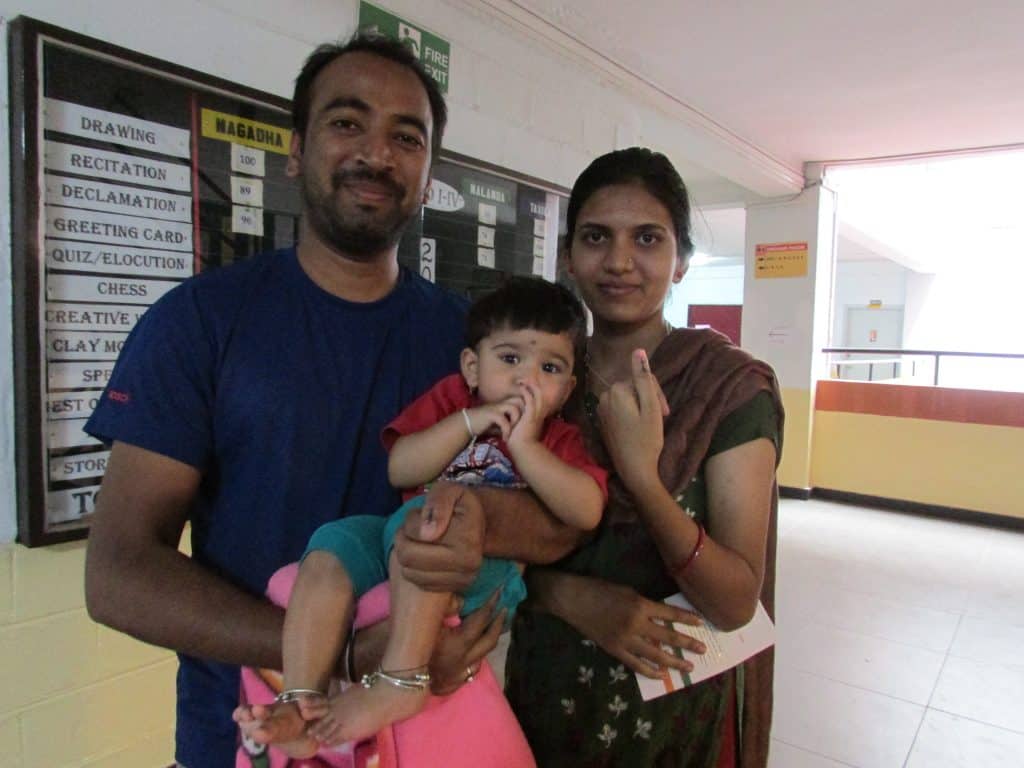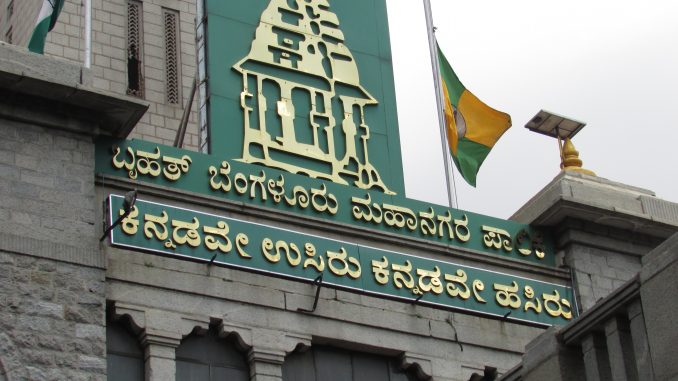
On September 10, the tenure of the BBMP Council ended, and the state government stepped in to appoint senior bureaucrat Gaurav Gupta as the corporation’s administrator. Gaurav Gupta will remain in charge of the corporation until a new bunch of corporators are elected in the next Council election. It was a move that didn’t surprise many who had been watching the space.
But the Council elections aren’t on the horizon anytime soon – partly because of the pandemic and largely because of politics. The state government has laid the ambiguity on election dates at the doorstep of the newly-proposed BBMP Bill. The Bill, which proposes increasing the number of BBMP wards and so on, is supposed to change the way Bengaluru is governed (the eyeroll emoji is appropriate here).
While the State Election Commission said it wants to hold the elections in December, Deputy Chief Minister C N Ashwath Narayan said the election may be delayed further as the reorganisation of wards, etc., would have to be completed once the BBMP Bill is passed. Things came to such a head that the Commission approached the High Court over the delay.
Why have a BBMP Council at all?
But let’s put the politics of it aside. What does it mean for you and me to not have an elected Council in the BBMP? I could go into a very long sermon on the importance of the 74th amendment, the importance of local governance, decentralisation of power… that’s going to put most of you to sleep.
If I had to put it in a nutshell as to why the absence of a Council will make a great deal of difference to us, I can do that in two words – accountability and access. Because this is history repeating itself, and we haven’t learnt our lessons. And we are going to suffer for it. Let me give you a run-down of what this deja vu is about – we don’t even have to go far into history.
In November 2006, senior bureaucrat Dilip Rau was appointed the administrator of the then-Bangalore Municipal Corporation. He continued in the post for three-and-half years. It is the longest Bengaluru had gone without a municipal council in place.

The state government was in the business of forming the BBMP at the time. BBMP came into existence in the April of 2007, but the Council election was conducted only in March of 2010, after the State Election Commission dragged the government to the High Court over the incessant delays in delimitation, etc. “Reasons by the state government are… flimsy, frivolous and lame,” the court had fired the administration at the time.
Scams in previous administrator tenure came out after Council was elected
What should interest you is that between 2007 and 2010, one of the bigger scams at the BBMP happened – the Rs 1,439-crore bogus bill scam. It involved the BBMP, BWSSB and the BDA collecting money for the same projects. You have to hand it to them for their ingenuity and sheer bravado for being able to do this.
This scam was, of course, a joint venture. But if it is standalone schemes you are interested in, here are a few. The Rs 1,000-crore garbage scam from 2007; the solid waste management scam from 2007 which was another Rs 150 crores; the Rs-223 crore scam of the Central Reserve Fund from the BBMP budget that started in 2006 and continued till 2011; the Rs 250-crore teacher procurement scam.
I am certainly not going to argue that no crooked schemes were hatched and implemented when the Councils were in place. They deserve the highest awards of the land just for creativity.
But only after the Council came into existence did its Standing Committees start looking into some of the abovementioned scams, and then private RTI activists started digging into BBMP’s account books. That’s accountability there!
The Kataria Committee report that looked into the financial irregularities of the BBMP from 2008 till 2015 also found a number of irregularities during the administrator’s tenure, including civil works amounting to Rs 2,184.18 crore that were in excess of the budget amount during 2009-10.
The report was one of the reasons the Siddaramaiah government dissolved the BBMP Council in 2015, citing its failure to discharge its civic duty, utter financial mismanagement, and large-scale irregularities (never mind the Palike was under the administrator for nearly half the duration covered in the report).
Last time too, the State Election Commission had to approach the High Court over government’s delaying of the BBMP elections. The Court even fined the state government Rs 10,000 before the latter stepped up. That’s two times of the state government stepping into BBMP’s jurisdiction since its formation.
So what is it about Bengaluru that makes it a turf war? Well, for one, it has some of the most expensive civic projects being implemented in the State. Without the corporators in place, the MLAs and the state government take control over the city. It is lucrative.
Without corporators, citizens have no access to BBMP
But without the corporators, the governance of the city gets hit badly, which is the immediate worry for you and me. Whom do we approach in the event of a civic problem? You garbage isn’t being collected; the road in front of your house is in a shambles (the irony isn’t lost on me); the monsoons have wrecked havoc – you don’t get to call your corporator anymore!
Corporators no longer have a say in the matter. That cuts off your access to your civic agency because, good luck getting through to whoever is the engineer or officer. We don’t even know who they are, most of the time!
Regardless of who has been in power, the local governance of Bengaluru has been a turf war where the citizens have been the losing party. We have seen this play out before. We are the proverbial goose that lays the golden egg which is slowly having its neck slit.
BBMP IS THE CESSPOOL OF CORRUPTION AND THE ELECTED REPS. INDULGE IN FRAUDULENT ACTIVITIES AND SCAMS .. ALL UNDER THE VERY NOSE OF THE VIGILANT ORGANISATIONS LIKE THE CBI, ED, ETC .. BUT .. SELDOM THE OFFENDERS ARE CAUGHT & BOOKED TO FACE THE MUSIC OF THE LAWS OF THE LAND !!